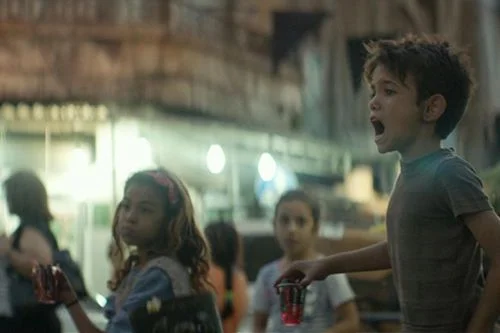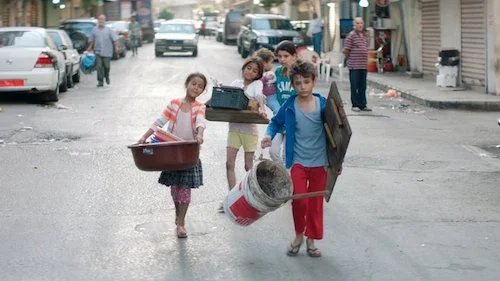Capernaum
If you don’t know the name Nadine Labaki, I recommend you get familiar with it. Labaki has recently confirmed herself as one of the most promising directors of her time. Her breakthrough Where Do We Go Now? was selected as the best film at the Toronto International Film Festival by audiences back in 2011; it was also a part of the Un Certain Regard line up at Cannes. Having a starring role and an important message to convey, the film obviously did well. I still don’t think anyone — fans or curators alike — could have predicted the ferocious Capernaum many years later. Labaki steps aside and is only featured in a very small role as a lawyer, but her commentary on the political scenarios in Lebanon is stronger than ever. This time, she spearheads the poverty found there, and just how disastrous it all is.
We start things off with a highly drastic note: a twelve year old child named Zain (played by the spectacular Zain Al Rafeea) is filing a lawsuit against his parents for being born. The premise on paper sounds so melodramatic, but even the most skeptical of viewers sense something is amiss the way Zain discusses the decision in the opening scenes. This isn’t some spoiled brat. There is a lot of hurt here. Still, the very idea seems so crazy. By the end of the film, you might find yourself fully supporting a child that thinks this is a possible case, because you may even wish it were. You will enter some severely dark territories with Capernaum, but not many films offer this level of damnation for you to truly dissect more than just endure.
A scene featuring Zain.
The film mostly takes place in the past, and it only cuts to the present when it is absolutely necessary (a nice restraint, for sure). We see Zain at home, and things are already off to an abysmal start. He and his siblings crush tramadol capsules into clothes for nefarious reasons: drug addicts, or unwilling victims, can huff these clothes to get high. They are forced to do this by their parents, as they live in what can only be described as hell. Babies are chained to furniture. Rot is in every corner of a room. Light barely exists. How could it get any worse? It does so extremely quickly.
Part of the film’s power is experiencing every single aspect of it head on, so I will refrain from detailing the lengthy journey that Zain goes on to free himself from the clutches of the suffocating slums of Beirut. All I will say is you will see many disturbing traits of a suffering underground, including child brides, hungry children, homelessness, people trafficking, and many more. When Zain tries to make it out on his own, life isn’t any easier or harder. It’s the same difficulty, but different. Is it better if your source of malnourishment is at your own hand as opposed to your parents’?
Zain in a moment featured later on.
You will see many supporting characters; some whose hearts get crushed like Zain’s, and some who do the crushing. At the lowest of the lows, hierarchies are dictated by selfishness and quick thinking. This leads to the endangerment of others, since lives are literally being sold. Zain, being the master of himself, finds that the cards he is being dealt will never be good. This is precisely why he is taking action against his parents for birthing him; his reasoning is that people in difficult positions should not subject unwilling lives to the same thing. As you go through this hyper-depressing film, you will understand it all. This is being invited into a never ending nightmare with no preconception of what a dream is. Nadine Labaki has brilliantly put together a think-piece with sanity and heart being challenged before your very eyes. You only get told how to think by a child reacting to his anguishes; everything else is observational by you. There might not be any proper words once you are finished the film. How can there be when you’ve witnessed all of this?
Andreas Babiolakis has a Masters degree in Film and Photography Preservation and Collections management from Ryerson University, as well as a Bachelors degree in Cinema Studies from York University. His favourite times of year are the Criterion Collection flash sales and the annual Toronto International Film Festival.







